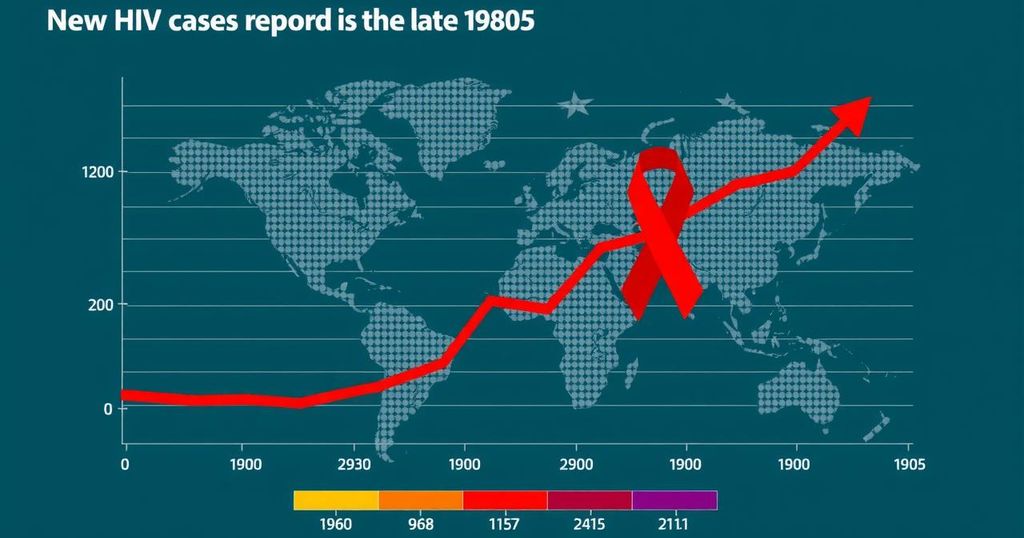UNAIDS Reports Decline in New HIV Cases but Highlights Continued Challenges
According to the latest UNAIDS report, new HIV infections have reached their lowest level since the late 1980s, with 1.3 million cases in 2023. Despite this progress, significant challenges persist, including treatment gaps where 9.3 million individuals are not receiving care and 28 countries recorded rising infection rates. The report calls for improved access to treatment and advocacy for human rights protections to accelerate progress in the fight against HIV/AIDS.
The most recent UNAIDS report indicates that HIV infection rates have reached their lowest point since the late 1980s, with approximately 1.3 million new cases recorded in 2023. While this decline marks significant progress in combating HIV, health officials caution that it remains insufficient to meet the United Nations’ objective of terminating AIDS as a public health crisis by 2030. The report also highlighted that around 630,000 individuals died from AIDS-related diseases last year, underscoring advancements in treatment that have reduced mortality since 2004. However, nearly 9.3 million of the estimated 40 million people living with HIV globally are not receiving necessary treatment, and 28 countries experienced rising HIV infection rates. Health officials attribute much of the progress in reducing new infections to antiretroviral therapies and community activism but emphasize that persistent discrimination hampers further advances. Christine Stegling, deputy director of UNAIDS, emphasized the importance of human rights protections in the continuing fight against HIV/AIDS.
Considered a major public health threat since its discovery, HIV/AIDS has affected millions globally. The fight against HIV has seen notable improvements through advances in medical treatment and increased awareness. UNAIDS regularly reports on these changes and the effectiveness of various initiatives, including the distribution of antiretroviral treatments and preventative measures like PrEP, which remain inadequately accessible in many regions due to legal and social barriers. Knowledge of these issues is crucial to understanding the ongoing challenges in combating HIV/AIDS, particularly in light of discriminatory laws that affect marginalized communities.
The UNAIDS report illustrates a critical moment in global health, showing both progress in the fight against HIV and the significant challenges that remain. While the decline in new HIV cases and deaths is commendable, the data reveals alarming gaps in treatment access, particularly for marginalized populations. Continuous advocacy for human rights, alongside improved access to preventative measures and treatments, is essential to remain on track toward eliminating HIV/AIDS as a public health threat by 2030. Immediate and concerted efforts must address both medical needs and legal barriers to ensure broad access to care and support for affected individuals.
Original Source: www.seychellesnewsagency.com




Post Comment